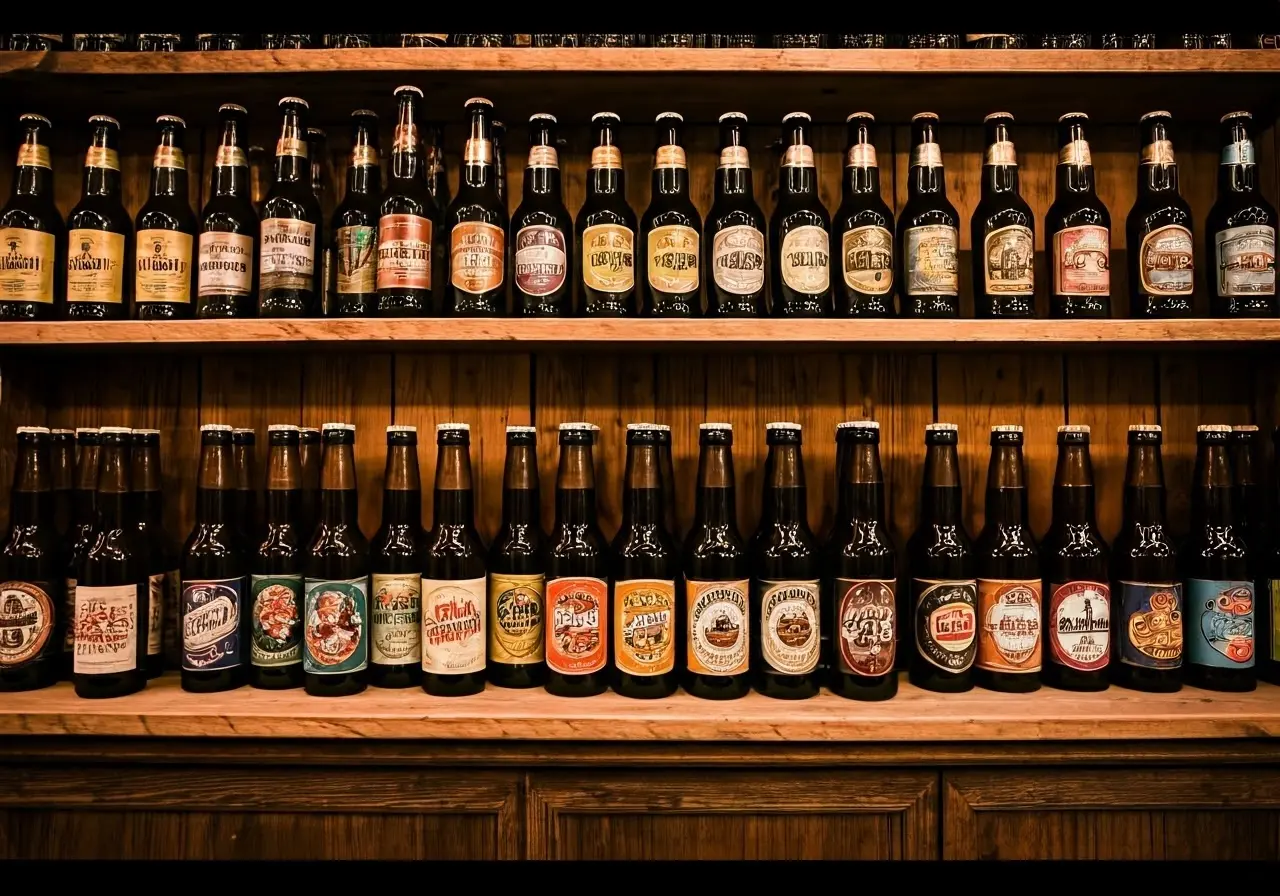
Artisanal beer has been making waves in the brewing industry in recent years. As more drinkers explore beyond mainstream offerings, there’s a growing appreciation for the unique flavors and stories behind each craft brew. But what exactly is artisanal beer, and why has it captured the hearts and palates of so many?
Understanding the Essence of Artisanal Beer
Artisanal beer is crafted with a focus on quality ingredients, traditional methods, and the brewer’s personal touch. Unlike mass-produced beers, these brews often offer a unique taste experience and a deeper connection to the locality of their production. This intrinsic tie to regions not only mirrors the terroir of wines but also brings about a sense of place. In an era where globalization is rampant, these beers offer a taste of authenticity and heritage. Brewers are passionate about their craft and invest time in understanding the intricacies of their ingredients and processes. This dedication is often reflected in their offerings, where each sip tells a story, from the moment the ingredients are sourced to the final pour into your glass.
What sets artisanal beer apart is the brewer’s commitment to traditional brewing methods, often passed down through generations. These methods prioritize the essence of time and patience, which are considered vital elements in the brewing process. Artisanal breweries frequently engage in small-batch production, allowing them to maintain control over quality and taste. Many of these brewers use locally sourced ingredients, which not only supports local agriculture but also enhances the freshness and flavor profiles of the final product. This intersection of history, community, and flavor is at the heart of the artisanal beer movement, making every bottle a testimony to the brewer’s passion and expertise.
The Passion and Creativity Behind Each Brew
Brewers of artisanal beer are often driven by a passion for experimentation and creativity. They are not bound by conventional constraints, allowing them to explore new flavors, styles, and techniques to create truly standout beers. These innovators are inspired by a multitude of influences, ranging from ancient brewing traditions to cutting-edge culinary trends. By incorporating unusual ingredients like exotic spices, fruits, or even tea, brewers push the boundaries of what beer can be. This is a space where creativity flourishes, and rules are often meant to be broken in pursuit of crafting a unique brew.
Interestingly, the creativity in brewing often mirrors culinary arts. Some brewers collaborate with chefs, creating a cross-disciplinary dialogue that enhances both the beer and the food. This trend is celebrated in beer festivals worldwide, where brewers and chefs come together to showcase their creative concoctions. The beer is not just a drink; it’s an experience. Each brew is a palette that can be explored and appreciated much like a fine wine or gourmet dish. For those who love culinary arts, artisanal beer offers a new frontier to discover flavors. These innovative brews beckon to those willing to taste outside the box and discover something extraordinary in each pour.
Contributing to Local Economies and Communities
Artisanal breweries contribute to local economies by sourcing ingredients locally and creating jobs. Additionally, they serve as cultural hubs, bringing communities together around shared appreciation and events. In towns and cities across the world, breweries are becoming community staples, where locals gather not just to enjoy beer but to connect as neighbors. Many breweries host events like open mic nights, trivia contests, and pairing dinners, thus fostering a sense of community that extends beyond just selling a product. In doing so, they create opportunities for local artists, musicians, and other small businesses to thrive.
The economic impact of artisanal breweries often radiates beyond their immediate locality. By choosing to buy local ingredients and merchandise, breweries help sustain a network of local trades and vendors. They often innovate alongside these partners, helping to elevate the reputation and quality of regional products. Furthermore, breweries often partake in philanthropic activities, supporting local charities, environmental initiatives, and sustainability projects. This strong community ethos makes artisanal breweries not just beer producers but integral parts of their communities, enhancing both local economies and social bonds read more about this community impact.
Exploring the Diversity of Artisanal Beer Styles
From hoppy IPAs to robust stouts and refreshing saisons, artisanal beers come in a myriad of styles. Each one tells a different story, reflecting the creativity and craftsmanship of the brewer behind it. The spectrum of flavors available in artisanal brews is vast and vibrant. For many aficionados, exploring these styles is an adventure, each one an expedition into uncharted territories of taste. The diversity in style often mirrors the global landscape—IPAs with their roots in England or saisons reminiscent of Belgian farmhouse ales.
For those looking to delve deeper into the world of artisanal beer, the journey can begin with something as accessible as a cozy local beer tasting. Many breweries offer guided tastings that open up the world of beer like a book waiting to be read. Enthusiasts can experiment with pairing different styles with various dishes, much like wine pairings, enhancing both the drinking and dining experience. The range of styles and flavors in artisanal beer is one of its defining charms, allowing everyone from the casual drinker to the seasoned enthusiast to find something to enjoy unique to their tastes.
Toasting to the Art of Craft Beer
Artisanal beer is more than just a trend; it represents a movement towards quality, creativity, and community within the brewing industry. Whether you’re a seasoned beer enthusiast or a curious newcomer, there’s always something new and exciting to discover in the world of craft brewing. Embrace the diversity and craftsmanship of artisanal beers, and toast to the passionate brewers who keep the spirit of innovation alive.

